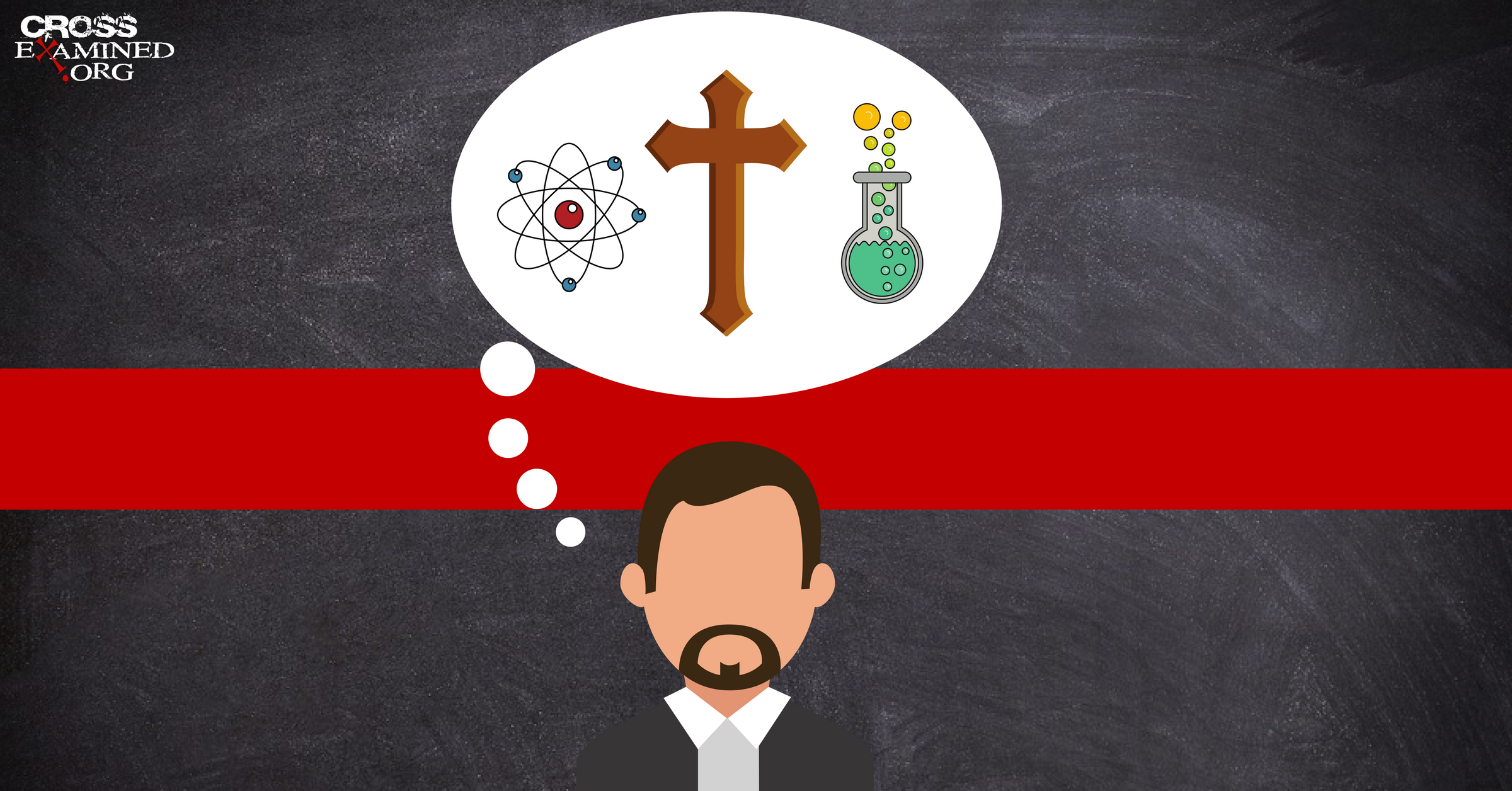Why Jesus Never Apologized
During a time of devotions, I came across a text written by A. W. Tozer. Tozer inquires, “Did you ever notice that our Lord Jesus Christ, when He walked the earth, never apologized? He never got up in the morning and said, ‘I’m sorry, boys. Yesterday when I was talking, I misspoke Myself, and I said this, but I meant that’” (Tozer, AOG II, 139–140). When the text is first read, one may think that Tozer implied that Jesus was obstinate and irritating. Such thoughts bring to mind that one person that everyone tries to avoid. You know the person, the one who always thinks that he/she is right and never apologizes when he or she is clearly in the wrong. However, this is not the point behind Tozer’s teaching. Tozer clarifies his intention when saying that Jesus never apologized because he never did anything that required an apology. How is this possible? It was only possible because Jesus was perfect. Tozer notes, “He was wisdom divinely incarnated in the voice of a man. And when He spoke, He said it right the first time. He never had to apologize” (Tozer, AOG II, 139–140). Jesus never had to apologize because he was perfect in all that he said and did.
Simon Peter taught this very thing. The amazing thing is that Simon Peter knew Jesus perhaps better than anyone. He walked, talked, and even lived with Jesus for 3 ½ years. He knew Jesus in public and in private. Yet he was still able to write the following about Jesus:
21 For you were called to this, because Christ also suffered for you, leaving you an example, that you should follow in his steps. 22 He did not commit sin, and no deceit was found in his mouth; 23 when he was insulted, he did not insult in return; when he suffered, he did not threaten but entrusted himself to the one who judges justly. 24 He himself bore our sins in his body on the tree; so that, having died to sins, we might live for righteousness. By his wounds, you have been healed. 25 For you were like sheep going astray, but you have now returned to the Shepherd and Overseer of your souls (1 Pet. 2:21–25, CSB).
Did you catch Peter’s teaching on Jesus’s perfection? He said that Jesus committed no sin and never said anything deceitful (1 Pet. 2:22). If a person thinks someone perfect, all one needs to do is to contact those who have lived with the person in question. My wife will quickly tell you how imperfect I am if asked. But this is not so with Simon Peter and the early disciples on their views of Jesus. Tozer is right in his assessment of Jesus. There are four ways that one can see how Jesus’s perfection negates any need for him to apologize.
Jesus never apologized for his suffering because he left us a perfect standard (1 Pet. 2:21, 23)
Jesus knew the difficulties he would face. But he willingly faced the sufferings of life so that he could serve as the perfect standard. Suffering is not something that someone should pursue. If a medicine is available to keep one from suffering, one should take it. However, when suffering comes, God can bring something good out of it. Notice that Peter said that Jesus did not threaten people when something did not go his way—a far cry from modern behaviors. He never had to apologize for a word falsely spoken, unlike yours truly. Everything Jesus said and did was intentional. While we all have role models we like to follow, Jesus is the best standard because he is the perfect standard. He knows the sufferings you endure because he has been there. He can identify with your suffering more than anyone ever could because he is the perfect standard. He suffered but never sinned.
Jesus never apologized for his actions because he was perfectly sinless (1 Pet. 2:22)
As Tozer previously noted, Jesus never apologized for something dumb that he did. He never had to express regret for a word misspoken. It was not as if Jesus would not have apologized and sought reconciliation if he were in the wrong. Jesus was humble. He was not obtuse in his manner of conduct. Rather, Jesus lived a perfect life that never required him to apologize. An important application for our lives can be found at this juncture. God’s actions are planned. God is doing something in your life with great intentionality. God never needs to apologize because his actions will bring forth an ultimate good. The good that God brings will be far greater than what we can contemplate. Thus, while things in the present may not make sense to us, we need to remember that God’s thoughts are far higher than ours (Isa. 55:8). Joseph could have easily thought that God had forsaken him when he was forsaken by his brothers, left for dead, before being sold as a slave. While in Egypt, he found himself imprisoned after being falsely accused of a crime that he did not commit. However, God elevated him to a status that would eventually allow him to save the lives of the very ones who enslaved him. God is bringing together a focused plan. The question is, do we trust God with our present and future?
Jesus never apologized for his death because he was the perfect sacrifice (1 Pet. 2:24)
When Jesus told his disciples that he would go to the cross, Peter abhorred the idea. He said that he would never allow someone to hurt Jesus. Peter, acting like a big brother to Jesus, wanted to protect his Savior at all costs, at least at that time. Jesus rebuked Peter, saying, “Get behind me, Satan! You are a hindrance to me because you’re not thinking about God’s concerns but human concerns” (Matt. 16:23, CSB). When reading the text in its totality, one discovers that Peter went from being called blessed after noting that Jesus was the Son of God to being called the Prince of Darkness in a matter of moments. That is what sticking your foot in your mouth will do for you. Even then, Jesus was calling out the spirit of darkness that tried to invade Peter’s thinking. The pandemic has surfaced the great instability of the modern psyche. The forces of darkness want you to be scared. They want you to think that all is lost. But remember, what people mean for evil, God intends for good (Gen. 50:20). The question is, do you trust God with your thinking?
Jesus never apologized for his leadership because he was a perfect Shepherd (1 Pet. 2:25)
One of the titles I have most appreciated is that of a pastor. The title relates to the role of a shepherd as its roots connect back to the concept of an overseer of grass-fed animals. Pastors impact their congregants. While many try to emulate the spiritual walk of their pastors or perhaps another person who has influenced their life, the ultimate role model is Jesus himself. When we try to become like another person, we adopt their bad practices. But with Jesus, he never had to apologize for bad leadership tactics. Jesus’s disciples were dismayed as they had hoped for a military leader who would take back Israel from Roman hands. However, Jesus was something greater than a military leader. He was, is, and forever will be the King of the Universe. Nations come, and nations go. Rulers rise and fall. But understand, Jesus will reign forever. Reading the comments from many Christians’ social media accounts, I am struck by the wonder that believers have not changed since the first century. Some seemingly indicate a preference for Jesus to serve as a political or military ruler, standing ready to blast away anyone with whom they find disagreement. However, Jesus’s leadership style has not changed. He will not apologize for his leadership style because he has come to seek and save the lost, not become our political pawn. He is a servant leader. He rules by compassion and grace. Modern believers must ask themselves, do they want a political hero, or do they want a divine King?
Conclusion
Jesus never had to apologize for anything he did because everything he did was perfect. Jesus holds the answers to the problems we face. As I read the writings of the NT, I am reminded how far from God’s mark we have become. The Christian life is about faith. It always has been and always will be. Faith is trust in a person. It does not indicate that a person believes something for which there is no evidence. That is a false definition of faith that has led to the very anti-intellectualism that harms the mission of the church. Rather, biblical faith is much more difficult. Biblical faith requires that one trusts God with the things that make sense and especially the things that do not. Jesus does not have to apologize because he is perfect. But we are anything but perfect. Do we trust the plan that Jesus has for us? Do we trust in his perfect mission? If you are looking for something for which you can be thankful, be thankful that you have a perfect Savior.
Sources
Tozer, A. W. Attributes of God. Volume Two. Camp Hill, PA: Christian, 2003.
Recommended resources related to the topic:
Jesus, You and the Essentials of Christianity – Episode 14 Video DOWNLOAD by Frank Turek (DVD)
How Can Jesus be the Only Way? (mp4 Download) by Frank Turek
Cold Case Resurrection Set by J. Warner Wallace (books)
Brian G. Chilton is the founder of BellatorChristi.com, the host of The Bellator Christi Podcast, and the author of the Layman’s Manual on Christian Apologetics. He received his Master of Divinity in Theology from Liberty University (with high distinction); his Bachelor of Science in Religious Studies and Philosophy from Gardner-Webb University (with honors); and received certification in Christian Apologetics from Biola University. Brian is enrolled in the Ph.D. program in Theology and Apologetics at Liberty University and is a member of the Evangelical Theological Society and the Evangelical Philosophical Society. Brian has served as a pastor in pastoral ministry for nearly 20 years.
Original Blog Source: https://cutt.ly/ghb0OPg












Leave a Reply
Want to join the discussion?Feel free to contribute!